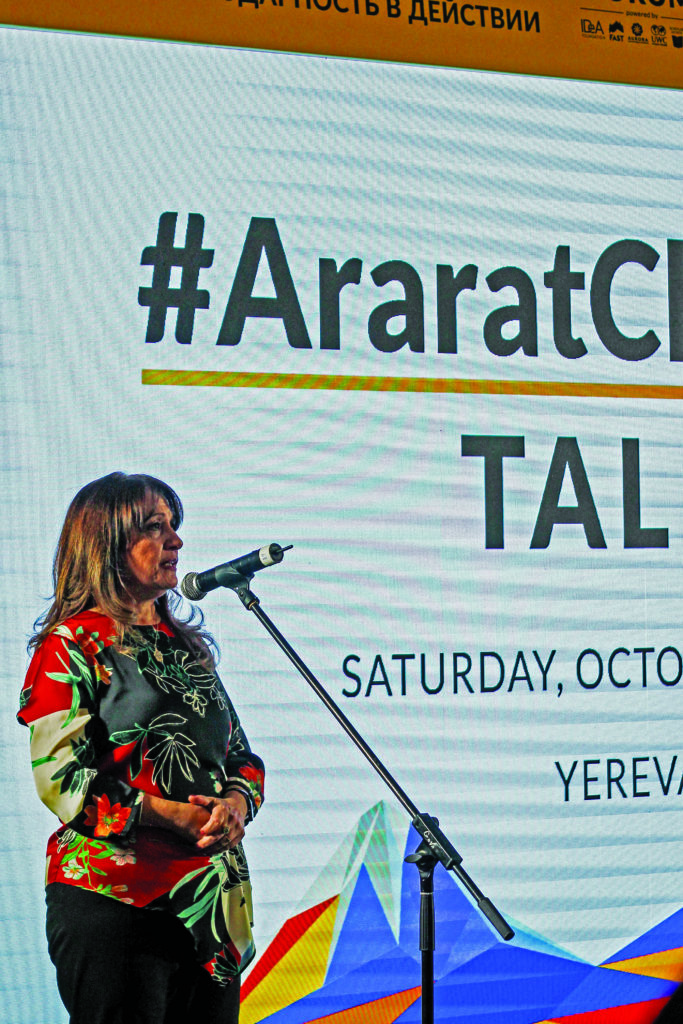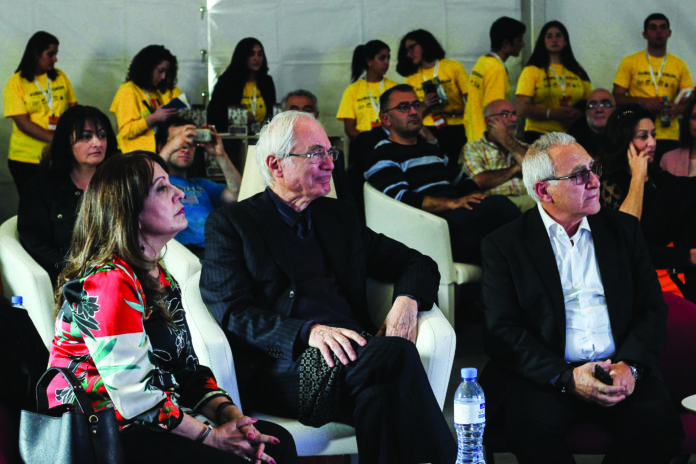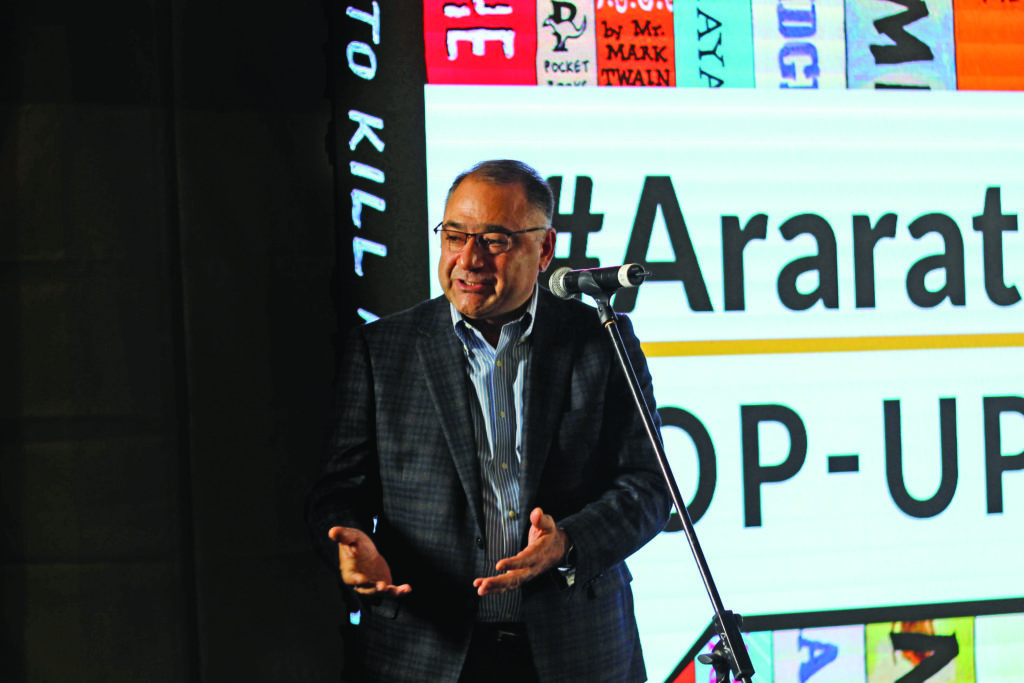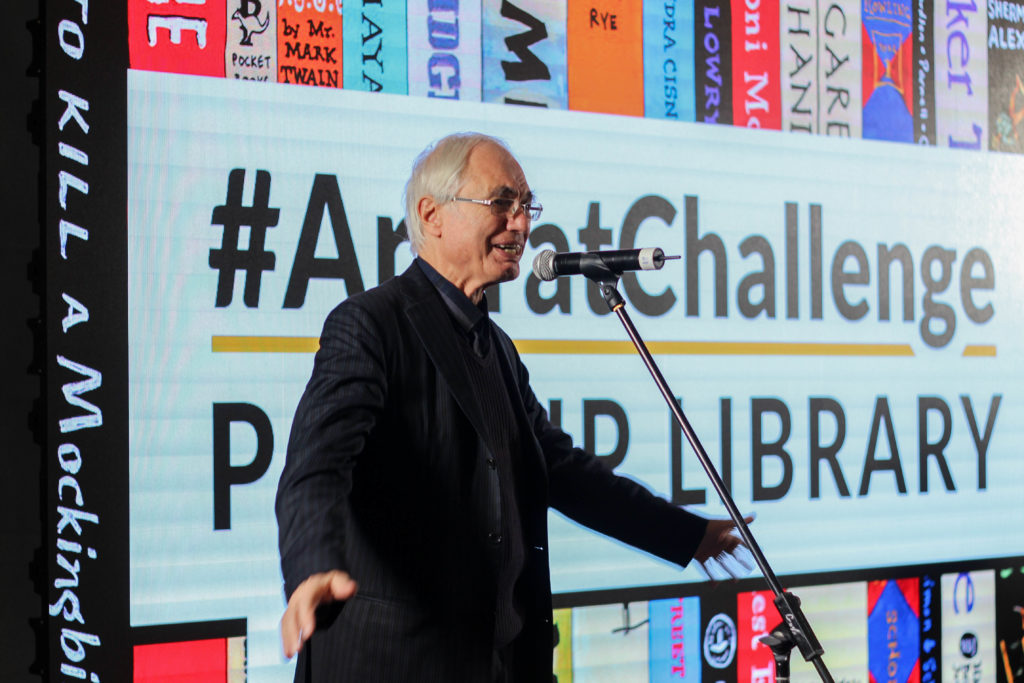By Gayane Ghazaryan
Special to the Mirror-Spectator
YEREVAN – On October 20, a presentation of the newly published Yes Im Anoush Hayastani [Ode to Armenia] by Yeghishe Charents, a book containing the translation of the famous poem of this name translated into 35 different languages, took place next to the Aram Khachaturian Opera and Ballet Building as part of the Aurora Humanitarian Forum of 2019. The audience included one of the greatest modern Armenian composers, Tigran Mansourian, as well as the grandchildren of Charents and of his best friends, poet Avetik Isahakyan and painter Martiros Saryan.
Charents was merely 23-24 years old when he wrote this great poem. It was dedicated to his first wife Arpenik, who died when she was 27. The creation story behind the poem is unknown, but it was always obvious to everyone that Charents’s love for Armenia was above everything else. As only one example of this, Charents volunteered to fight against the Turks when he was just 17. He dedicated his whole life to his country and his people, and his writings from prison indicate that he was still thinking about his people at the very last moments of his life. Unfortunately, he did not manage to do everything he planned in his lifetime for his country, yet his legacy is an indelible part of Armenian literature.

His granddaughter, Gohar Charents, started the presentation by telling the story that inspired the creation of the book. It turns out that four years ago, a young Indian tourist entered the house/museum of Charents (where Gohar works), and approached her to ask about different translations of “Yes Im Anoush Hayastani.” Not long after, he showed translations of the poem done by him and his Indian friend into Hindu and Bengali. Gohar admitted that it was a quite big surprise for her, since she has never heard of the Bengali language before, but he told her that it was one of the most widespread languages in India.
The young tourist also explained the reason behind their desire to know and understand better what the poem was about. The Indian boy once asked his Armenian friends to guide him to find the most beloved poem by Armenians, and the answer he received was “Yes Im Anoush Hayastani.” This inspired Gohar and planted a fresh idea in her mind, to find the best translators all around the world in order to give the opportunity to understand the poem to more than 30 different nations around the world. She determined to find translators who were Armenian, since she felt that the best way of achieving this was to translate the poem directly from its original Armenian. “The process of finding the translators was quite tough,” she admits. “We had to keep the correct format and the word count so the poem sounds right. The translators also had to have a decent knowledge of Armenian literature, history, Charents, and have the spirit of the poem inside themselves.”










